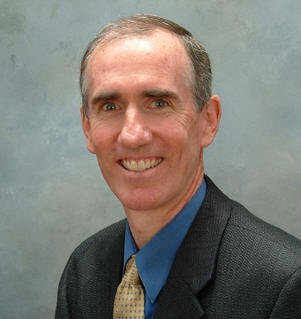System Maintenance occurs every Friday.
Semiconductor and integrated circuit developments continue to proceed at an incredible pace. For example, today's microprocessor, graphics, and AI processing chips have one thousand times the processing power of those a decade ago. These challenges have been accomplished because of the integrated circuit industry's ability to track something known as Moore's Law. Moore's Law states that an integrated circuit's processing power will double every two years. This has been accomplished by making devices smaller and smaller. The question looming in everyone's mind is "How far into the future can this continue?" Leading Edge Process Tradeoffs is a 1-day course that offers detailed instruction on the fabrication process used in a modern integrated circuit, and the tradeoffs engineers and scientists must make in order to reliably manufacture state-of-the-art integrated circuits. We place special emphasis on current issues related to manufacturing the next generation devices. This course is a must for every manager, engineer and technician working in the semiconductor industry, using semiconductor components or supplying tools to the industry.
By concentrating on the latest developments in silicon integrated circuit technology, participants will learn why tradeoffs are becoming critical at feature sizes below 20nm. Our instructors work hard to explain semiconductor processing without delving heavily into the complex physics and materials science that normally accompany this discipline.
Request a date and location for this course.
1-Year Online Training Subscription
(Includes this and other materials.)
$695
$700
Please note: If you or your company plan to pay by wire transfer, you will be charged a wire transfer fee of USD 45.00.
Please email the printable registration form for public courses to us at the email address on the form to complete your order.
If you have any questions concerning this course, please contact us at info@semitracks.com.
If a course is canceled, refunds are limited to course registration fees. Registration within 21 days of the course is subject to $100 surcharge.
Participants will learn basic, but powerful, aspects about integrated circuit fabrication technology. They will focus on understanding impacts on performance, understanding basics of what may happen if something is incorrect or pushing a design limit, and knowing what to consider and ask for when working with process engineers on issues and improvements. This skill-building series is divided into three segments:
By using a combination of instruction by lecture, classroom exercises, and question/answer sessions, participants will learn practical information on semiconductor processing and the operation of this industry. From the very first moments of the seminar until the last sentence of the training, the driving instructional factor is application. We use instructors who are internationally recognized experts in their fields that have years of experience (both current and relevant) in this field. The accompanying textbook offers hundreds of pages of additional reference material participants can use back at their daily activities.

Christopher Henderson received his B.S. in Physics from the New Mexico Institute of Mining and Technology and his M.S.E.E. from the University of New Mexico. Chris is the President and one of the founders of Semitracks Inc., a United States-based company that provides education and semiconductor training to the electronics industry.
From 1988 to 2004, Chris worked at Sandia National Laboratories, where he was a Principal Member of Technical Staff in the Failure Analysis Department and Microsystems Partnerships Department. His job responsibilities have included failure and yield analysis of components fabricated at Sandia's Microelectronics Development Laboratory, research into the electrical behavior of defects, and consulting on microelectronics issues for the DoD. He has published over 20 papers at various conferences in semiconductor processing, reliability, failure analysis, and test. He has received two R&D 100 awards and two best paper awards. Prior to working at Sandia, Chris worked for Honeywell, BF Goodrich Aerospace, and Intel. Chris is a member of IEEE and EDFAS (the Electron Device Failure Analysis Society).
At Semitracks, Chris teaches courses on failure and yield analysis, semiconductor reliability, and other aspects of semiconductor technology.